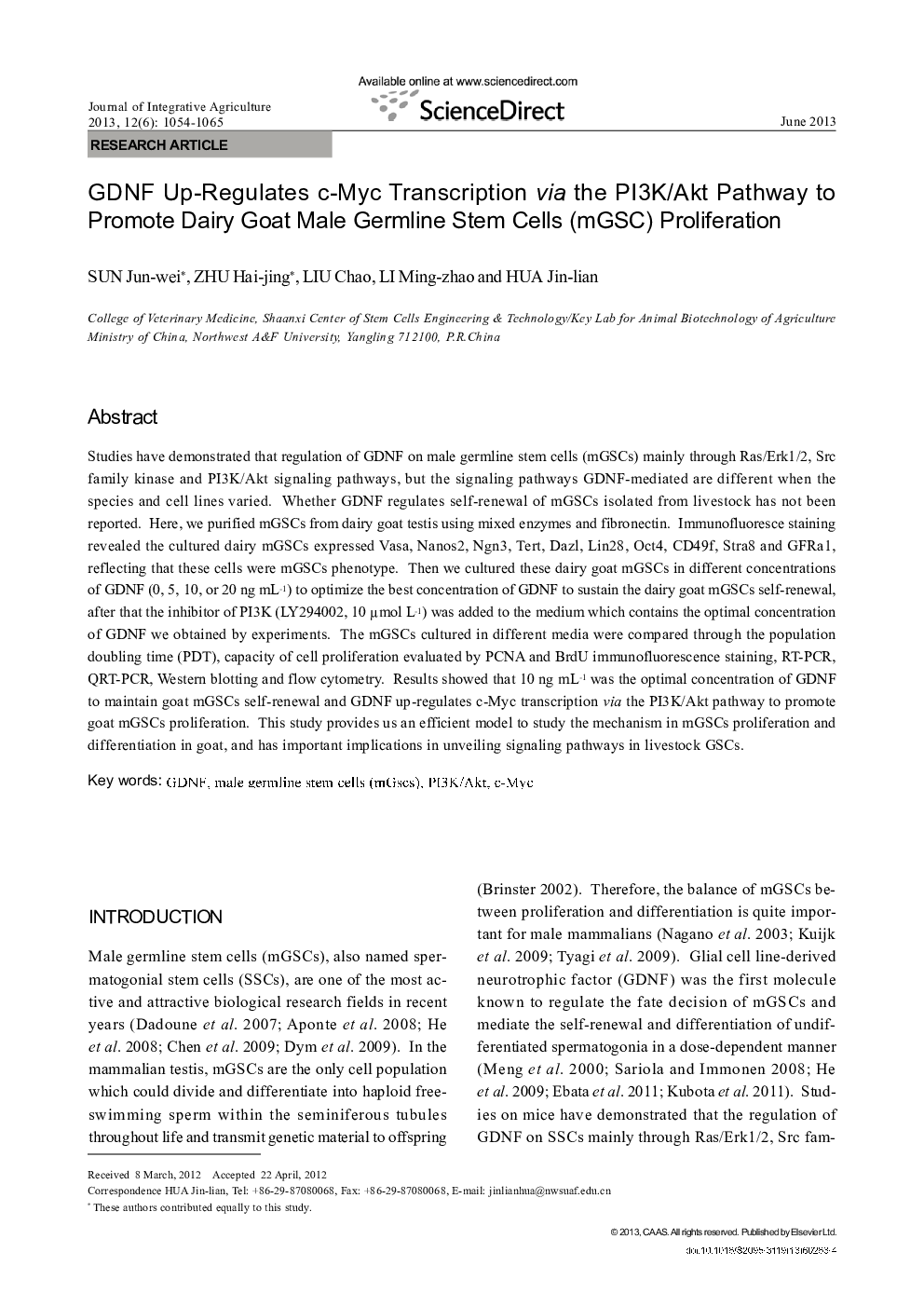| Article ID | Journal | Published Year | Pages | File Type |
|---|---|---|---|---|
| 4495060 | Journal of Integrative Agriculture | 2013 | 12 Pages |
Studies have demonstrated that regulation of GDNF on male germline stem cells (mGSCs) mainly through Ras/Erk1/2, Src family kinase and PI3K/Akt signaling pathways, but the signaling pathways GDNF-mediated are different when the species and cell lines varied. Whether GDNF regulates self-renewal of mGSCs isolated from livestock has not been reported. Here, we purified mGSCs from dairy goat testis using mixed enzymes and fibronectin. Immunofluoresce staining revealed the cultured dairy mGSCs expressed Vasa, Nanos2, Ngn3, Tert, Dazl, Lin28, Oct4, CD49f, Stra8 and GFRa1, reflecting that these cells were mGSCs phenotype. Then we cultured these dairy goat mGSCs in different concentrations of GDNF (0, 5, 10, or 20 ng mL−1) to optimize the best concentration of GDNF to sustain the dairy goat mGSCs self-renewal, after that the inhibitor of PI3K (LY294002, 10 µmol L−1) was added to the medium which contains the optimal concentration of GDNF we obtained by experiments. The mGSCs cultured in different media were compared through the population doubling time (PDT), capacity of cell proliferation evaluated by PCNA and BrdU immunofluorescence staining, RT-PCR, QRT-PCR, Western blotting and flow cytometry. Results showed that 10 ng mL−1 was the optimal concentration of GDNF to maintain goat mGSCs self-renewal and GDNF up-regulates c-Myc transcription via the PI3K/Akt pathway to promote goat mGSCs proliferation. This study provides us an efficient model to study the mechanism in mGSCs proliferation and differentiation in goat, and has important implications in unveiling signaling pathways in livestock GSCs.
